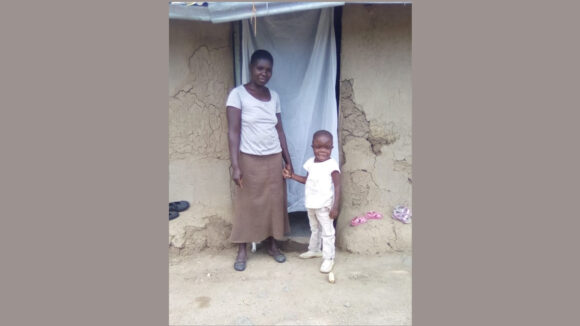Our work on inclusive early childhood development and education in Kenya
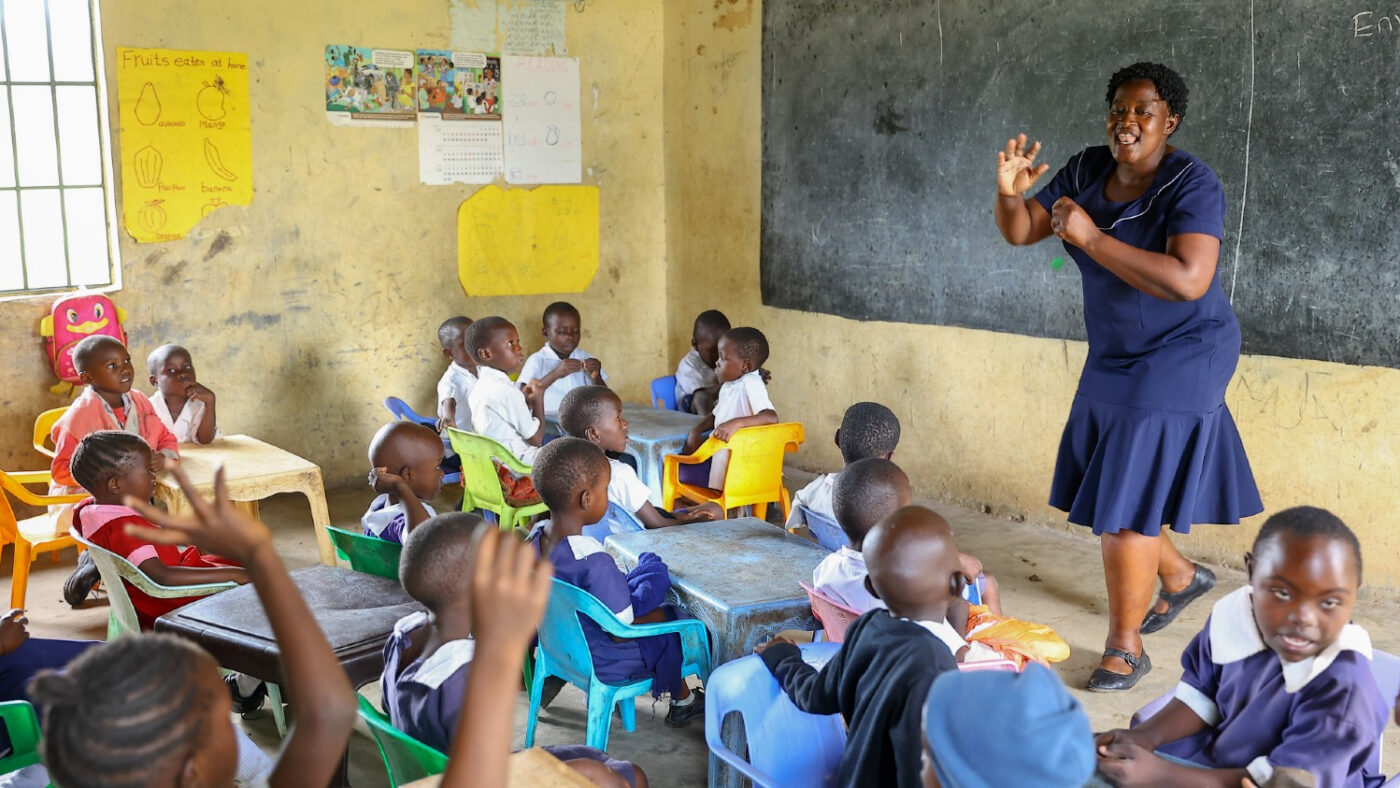
Children’s early years are an essential time in their growth and development. It can shape their whole lives, helping to prepare them for a life of learning.
It’s vital that we reach children with disabilities during their early years so we can support them to reach their full potential. Learning in a child’s early years is the starting point in their educational journey. Despite this, there is little research or evidence of what works to include children with disabilities in early years education, especially in relation to improving attendance, participation and learning.
In Kenya, Inclusive Futures is piloting affordable inclusive early years development and education for children with disabilities in pre-primary schools in Homa Bay County in western Kenya, and in Kakuma refugee camp in Turkana County, near the border with Uganda. Through testing disability-inclusive practices across different settings, we aim to learn more about what works.
From focus group discussions carried out by our partner the Institute for Development Studies (IDS), at the beginning of the project, we learned that:
- Despite the importance of early identification and assessment of children with disabilities, parents, especially those living further away from government-run assessment centres, struggled to get their child assessed.
- Teachers in mainstream schools felt they needed more knowledge and resources in order to be more inclusive, and had mixed expectations of what children with disabilities could achieve.
- Parents and caregivers of children with disabilities needed more support in how to care for their children and support them in their education.
Encouragingly, since the project began, we’ve seen an increase in the number of children with disabilities enrolling in mainstream preschools. In addition, teachers have noticed children without disabilities being more accepting of and playing with children with disabilities.
Some of the innovative approaches we’re using in the project include:
- A steering committee informed by people with lived experience of disability
The project is driven by a steering committee made up of members from organisations of people with disabilities (OPDs), NGOs, and national and county level government partners. The steering committee not only provides project leadership and oversight, but also an opportunity to scale up good local practice to the national level.
- Engagement with the community
At a community level, we are working to reduce stigma and discrimination, which prevents children with disabilities from going to school. For example, representatives of people with disabilities from the local community visit families of children with disabilities to raise awareness about inclusive education and follow up with households where children haven’t reported back at the beginning of the school term. We have also produced a Positive Parenting Manual to help parents support their children in pre-primary education.
- Working at a school level
At a school level, we offer training and support for teachers at mainstream schools to support children with disabilities to reach their educational milestones, and track their progress. By taking a holistic approach to children’s development, and by bringing together different stakeholders like the National Council for Persons with Disabilities, health professionals, parents and caregivers, and learning support assistants, we are seeing an improvement in the learning, functionality, and development of children with disabilities.
- Influencing education systems and policies
At a system level, we are advocating for the use of Washington Group Questions to collect data on disability when children are enrolled in school. Our partner, Humanity & Inclusion, have also developed a model accessible and inclusive learning school in Kakuma refugee camp, which has the potential to be scaled up and replicated elsewhere.
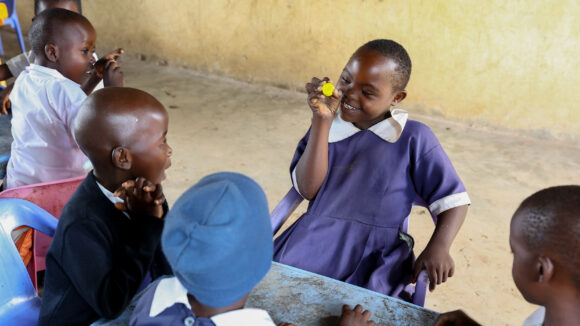
Delivering change
Inclusive Futures has brought together a consortium of experts to improve early childhood education for children with disabilities in Kenya.
Read morePeter’s story
As part of the project, Inclusive Futures partner, Sense International, has been working with parents to support home-based learning and to encourage parents to enrol their children at school when they are ready.
Peter has speech, hearing and visual impairments and regularly suffers from seizures. He and his other brothers have been supported by an at home learning assistant through the project. His mother says:
“Having the learning support assistant has been very beneficial. [Peter] can now respond to simple instructions, look at you when you call him, can hold a pen and book and you can see him scribbling and doing colouring. This has given me boundless joy… I am encouraged that my son can even go to school.”
Peter’s mother has also benefitted from having the support of the learning assistant:
“I have reduced my stress levels because we get to talk, and she understands me. All my children love her and even though she is meant to support Peter only, she has extended her services to the other children too. She has also taught me ways to support the other two children.”
Inclusive Futures is working to remove the barriers that can prevent learners with disabilities from accessing education. We’ll continue to share research from this project as it progresses, explaining what we have learned and how this could help to embed inclusive early education practices elsewhere.
Our inclusive early childhood development and education project brings together the expertise of different consortium partners including Humanity and Inclusion, Sense International, IDS, Leonard Cheshire and Sightsavers. We also work in partnership with the National and County Ministries of Education, local and national OPDs, including United Disabled Persons of Kenya, as well as relevant semi-autonomous government agencies working in education.
“I am encouraged that my son can even go to school.”
More news and opinions
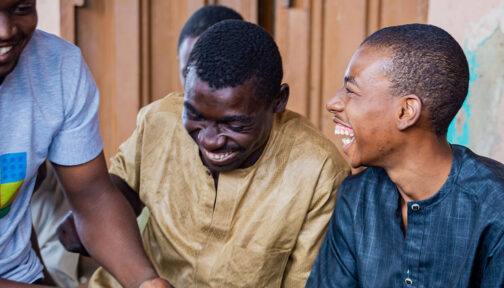
Global Disability Summit 2025: Closing the gap between disability inclusion and development
Inclusive Futures is attending the summit in Berlin on 2-3 April. Visit our booth or attend our panel event to connect with us and learn more about our programme insights.
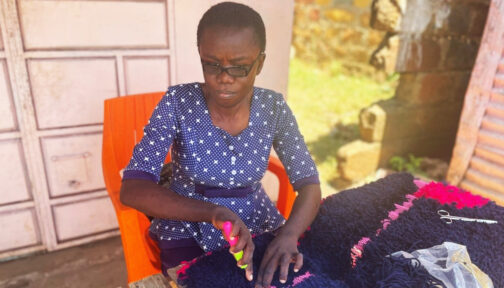
Sense International wins prestigious Zero Project award for its work with entrepreneurs with disabilities
Sense International has won a 2025 Zero Project Award for empowering individuals with deafblindness and complex disabilities in Kenya to build successful businesses and achieve financial independence.
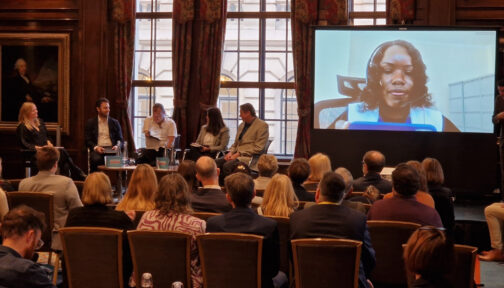
Driving change: launching the six principles for inclusive development
Inclusive Futures and the UK Foreign, Commonwealth & Development Office marked International Day of People with Disabilities by jointly hosting an event to launch the six principles for inclusive development.

